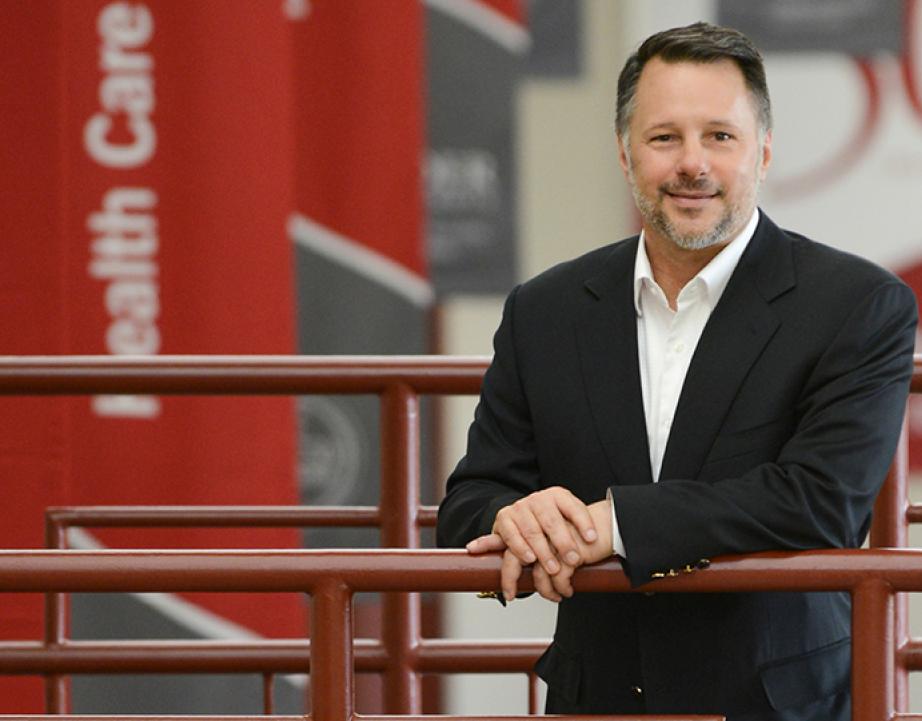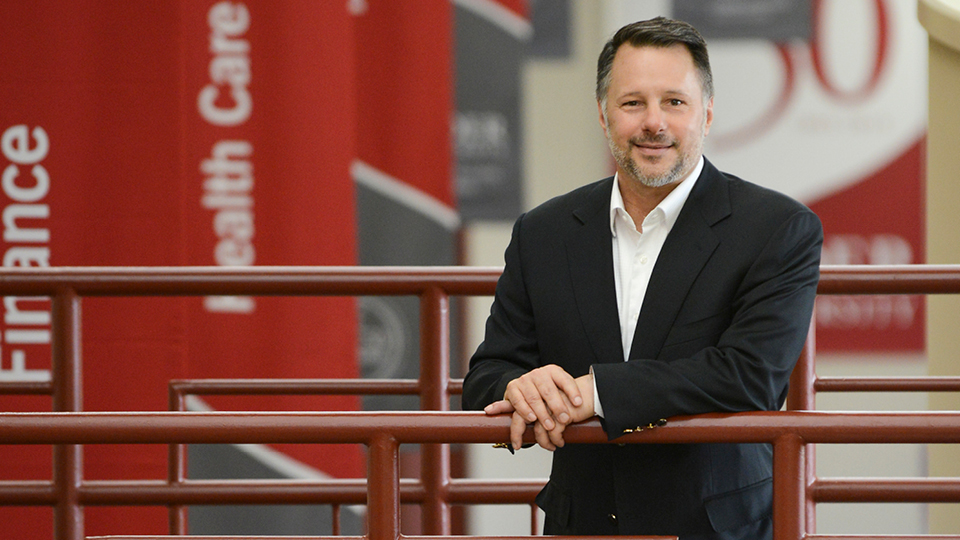by Richard Quinn
Vincent Milano '85 already built one multibillion dollar company. Can he build a second?
Three years ago, Idera Pharmaceuticals named Vincent Milano ’85 as its chief executive officer. The Cambridge, Mass., firm, which is listed on the NASDAQ exchange, is now on its way to introducing its first FDA-approved drugs for the treatment of cancer and rare diseases.
Milano’s position sounds impressive — and, of course, it is — but it’s an encore performance for him. He was previously chairman, president and chief executive officer of ViroPharma, an Exton, Pa., company he started with in 1996 as the firm’s 21st employee. He climbed the ranks and, as its leader in 2014, sold the firm to Irish pharmaceutical giant Shire for $4.2 billion.
But that journey had setbacks along the way. ViroPharma had been working on a medication in the late 1990s for the common cold. The firm grew from 21 people to several hundred as it climbed toward unveiling its first approved medication, a milestone for any medical R&D firm.
Success seemed to beckon.
But the drug was never approved.
Staff was let go in droves.
By the time Milano was named chief executive in 2008, the company had whittled down to fewer than 40 people.
“What I took from those incredible 18 years is that you have to have that positive attitude that you started this goal with because this is one hard business to live through,” Milano says. “We had created through all those challenges what I think was an incredibly unique culture. Very much focused on our patients. Very much focused on having an environment for people to be able to be innovative, listened to, held accountable (and) focused on working together as a team.”
ViroPharma — first with Milano as chief operating officer, then as CEO — made two significant acquisitions that positioned the company for growth and built it back up from its nadir of just a few dozen workers.
First, it purchased a drug that treats one of the main causes of hospital-acquired infections, a nasty bacteria known as Clostridium difficile. Second, it acquired a medication that treats the rare and debilitating blood disorder dubbed hereditary angioedema.
The two purchases primed the company — again back up to hundreds of employees — for acquisition by the proverbial bigger fish.
“We were able to find things that people didn’t really understand well or weren’t paying attention to,” Milano says. “We did our homework. As I like to say, we took our shovel and dug deeper than others would have, and it turned out that we were able to execute our ideas and turn them into very successful products for the patients and ultimately for shareholders.”
And, just like that, ViroPharma sold itself.
Milano was 50, with two adult children and a third attending high school in his adopted hometown of Phoenixville, Pa. Milano’s wife, Christie Hotaling Milano ’84, didn’t want him skulking around the house. And his accounting professors at Rider didn’t teach the now 53-year-old to quit when he was ahead.
“I would say the thing that I learned a lot about, which fit more into my scrappy style, is that I went to this small, private school, but I got a tremendous education,” he says. “And it’s easy to underestimate people when you focus on pedigree as opposed to personal traits. So my application in the real world is that I very, very much do not focus on pedigree and very much focus on personal traits.
“Rider really taught me to ask more questions and think deeply about what you’re trying to do as opposed to relying on superficial things like the headline of where you went to college or what your GPA was or any of that.”
So shortly after selling his company, Milano started looking to build a new one. He had developed a passion for the bio-pharmaceutical sector, particularly the hunt for drugs that battle rare diseases.
This is the same passion he felt often in his youth about baseball — the only team sport without a clock, which requires playing not just until a whistle or a buzzer, but until the task at hand is done.
Milano was a pretty good second baseman for the Fighting Clan when he graduated from South Jersey’s Vineland High School in 1981. He was a Baltimore Orioles fan in the heart of Philadelphia Phillies territory, so he knew how to stand for what he believed in and he had faith in his work ethic and competitive streak. (The Orioles fan named his oldest Cal in a nod to Baltimore baseball legend Cal Ripken Jr.)
There was no sports scholarship when he enrolled at Rider College. He had to rely on grit, which led him to try out for legendary Rider manager Sonny Pittaro, who would go on to lend his name to Sonny Pittaro Field, where the Broncs now play baseball each season.
“He asked me where I was from. I told him I was from Vineland and he very politely told me he didn’t like players from South Jersey because he didn’t think they were dedicated,” Milano says. “And I politely smiled at him and said, ‘I used to always make it back from the beach in time to go to practice, Coach.’”
In the classroom, Milano levied that sense of determination and drive to excel in Rider’s accounting program. The business acumen he accrued back then has served him well. At first, it was 11 years at KPMG, straight out of college, before he was poached into the bio-pharmaceutical sector.
“We’re all a product of our experiences,” he says. “What I’ve learned is that I tend to spend all my energy thinking about what we have control over and none of my energy over what we don’t. That is one of my guiding principles to keeping my blood pressure in check… get the right people, build the right culture and be thoughtful in the way we choose the things we choose to do, and if it doesn’t work, it doesn’t work. I’m not a win at all costs kind of guy.”
While looking to build his own platform, he was approached by several backers of his old firm, ViroPharma. They were looking for a chief executive for another pharmaceutical firm in which they were among the biggest investors.
They were looking for someone with the drive to build from within — again.
So Milano became chief executive of an existing company — again.
One that was in development of its first drug — again.
“I am not saying I’m trying to create another ViroPharma, but I would like to create another company that can make a difference in patients’ lives and also be a company that people really want to work for,” he says. “We had a great environment with great people and a great company. And we happened to do some incredibly important things for patients suffering from these really tremendously life debilitating diseases, and their families. So that’s what I am trying to do again.
“It’s a different world but maybe I can get lightning to strike twice.”


